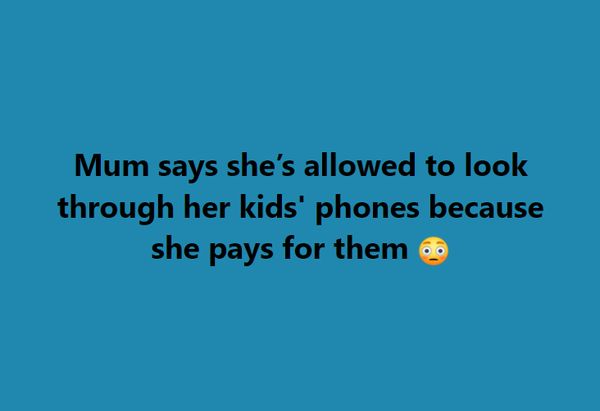
As parents, we all strive to do our best when it comes to guiding our kids and ensuring they make responsible decisions. This is exactly what Laura Muse, a mother from North Carolina, does when it comes to monitoring her teens’ screen time.
Every night, at around 11:30 pm, Laura follows a routine with her teenage son Cohen. She tucks him into bed with a kiss and then confiscates his cell phone for the night. This nightly ritual is just one of the ways Laura manages her children’s screen time and online activities to promote proper rest and responsible online behavior.
As a mental health clinician and the owner of her children’s phones, Laura believes she is justified in her actions, despite facing some criticism. She is aware that some parents may view her actions as an invasion of privacy, but for Laura, it is an essential part of parenting.
Laura is not alone in her approach. Many parents share their tactics for monitoring their teenagers’ online behavior under the hashtag #RaisingTeens on social media. In fact, a survey by Malwarebytes revealed that 54% of parents use multiple methods to supervise their teens’ online activities, such as GPS tracking and reviewing texts and social media posts.
Laura’s vigilance began when her children first got their phones at the age of 11. Initially, she conducted random weekly inspections, but as her children grew older, the checks became less frequent. Although she trusts her children, Laura believes that monitoring their digital behavior helps prevent them from engaging in inappropriate activities and protects them from online dangers.
Through her interventions, Laura has sometimes discovered concerning behavior, such as her son posting inappropriate content on social media. She addresses these issues directly with her children, turning them into teachable moments. Open communication and boundary-setting are crucial in guiding her children’s use of technology.
While some may criticize parents who go through their children’s phones, Laura’s children appreciate her involvement in their digital lives. She sees her interventions as a way to nurture and protect her children, rather than a breach of privacy.
So, what do you think? Would you do the same with your own children? Let us know in the comments!



